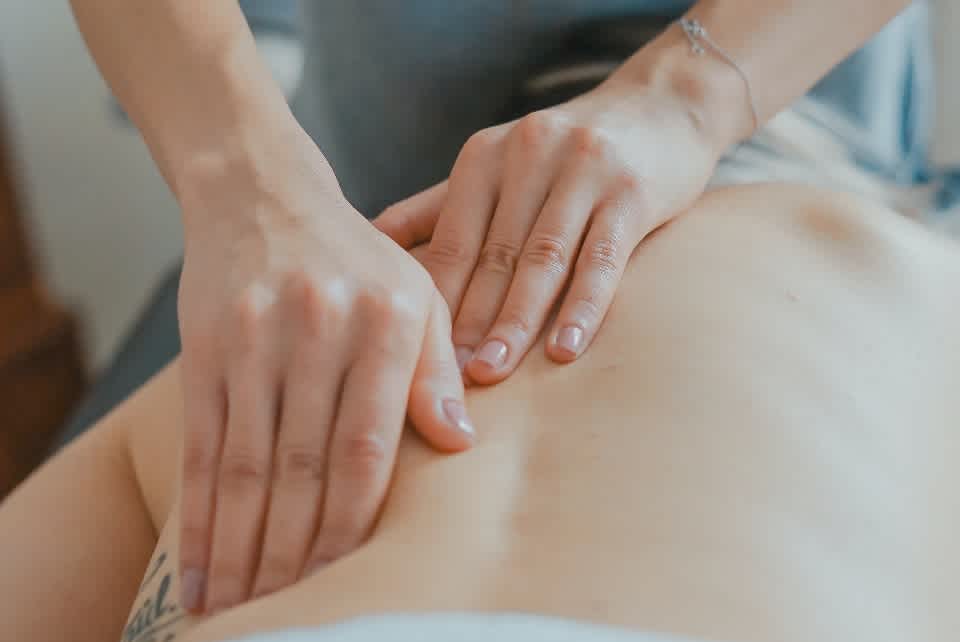If you’re considering a career in Sports Massage, you might have noticed various levels at which you can study Sports Massage. In this article, we outline what you could do with a Level 4 Sports Massage qualification, as well as go over some of the other qualification levels.
So, what can a Level 4 Sports Massage Therapist do? A Level 4 Sports Massage course teaches more advanced skills and techniques than a Level 3 course, meaning that therapists can perform treatments such as soft tissue release, muscle energy techniques, trigger points, and more, which help to provide quicker results than Level 3 techniques.
Read on to learn more about what you can do as a Level 4 Sports Massage Therapist.
What Can You Do With Level 4 Sports Massage?
A qualification in Level 4 Sports Massage allows Massage Therapists to practise more advanced techniques, and treat a wider range of conditions than with a Level 3 qualification. These include:
- Soft Tissue Release
- Planning Soft Tissue Techniques
- Muscle Energy Techniques
- Corrective Frictions
- Trigger Points
- Positional Release Technique
- Treatments for Injuries and Chronic Injuries
However, one of the key benefits of a Level 4 Sports Massage qualification is the ability to screen and assess clients. Massage Therapists with qualifications below this are not able to perform this service, and their clients would need to be assessed elsewhere before having treatment.
Level 4 Sports Massage Therapists can:
- Use screening techniques to determine conditions, their causes, and severity
- Perform objective and subjective assessments
- Record client information
- Identify contraindications
- Devise a treatment plan
- Obtain consent for treatment
- Monitor and evaluate tissue responses, and adapt appropriately
- Provide aftercare and advice
What’s the Difference Between Level 3 and Level 4 Sports Massage?
A Level 3 qualification in Sports Massage Therapy is the minimum requirement to practise as a Sports Massage Therapist. It requires no prerequisites or formal training and, as such, anyone can train to be a Level 3 Sports Massage Therapist. The qualification teaches a range of skills and techniques to cover common concerns, aid athletes with routine massage, recovery from low-level injuries, inflammation, and maintain an optimal musculoskeletal system. However, Level 3 Massage Therapists are fairly limited with what they can and cannot do;
More Advanced Techniques
A Level 4 Sports Massage qualification allows Sports Massage Therapists to practice more advanced techniques that Level 3 Therapists cannot do. This is particularly important for clinic environments and more specialised, premium areas such as sports medicine clinics. The Level 4 Sports Massage qualification, naturally, builds on what Therapists learned at Level 3, allowing them to develop a much deeper understanding of human anatomy, Sports Massage techniques, and their applications.
Soft Tissue Injuries
Level 3 Sports Massage Therapists are not qualified to work on soft tissue injuries, however, those with a Level 4 qualification are. Most Level 4 courses teach a greater understanding of the various stages of injury, the healing process, scars, and how soft tissue techniques should change throughout these stages. Screening, Assessment, and Planning.
A key aspect of the Level 4 Sports Massage Qualification is the ability to screen and assess clients’ concerns, diagnose, and plan effective treatment. Those with Level 3 qualifications are not able to do this due to insufficient knowledge.
Can Work in a Clinical Environment
If you’re looking to work in a clinic as a Sports Massage Therapist, most employers will ask for a Level 4 qualification. Level 3 qualifications are not sufficient to be able to treat all conditions that a clinic will see.
What is a Level 5 Sports Massage Therapist?
Level 5 and Level 6 qualifications in Sports Massage Therapy generally cover the same content as Level 4, but you will have longer to learn and practice, meaning that you will graduate more experienced and more confident.
However, there is little reason for clinics to require more than a Level 4 Sports Massage qualification. Whilst Level 5 and 6 graduates may be more practised, they, in theory, or in practice, don’t teach anything different.
Level 6 degrees, in particular, are often advertised as “Higher Level”, “Degree Level”, or “Masters Level”. But, note that Sports Massage qualifications are vocational, and cannot actually be completed to or compared to degrees.
If you wish to deepen your knowledge beyond Level 4 Sports Massage, we recommend looking into a degree in subjects such as Osteopathy, Physiotherapy, or Chiropractic.
How Do You Get Certified in Sports Massage?
Those wishing to become a Sports Massage Therapist must complete a relevant, accredited sports massage course at a minimum of Level 3. The most widely recognised qualifications are the Level 3 Diploma in Sports Massage Therapy and the Level 4 Certificate in Sports Massage Therapy.
Learn more about how to become a Sports Massage Therapist, in our recent blog that goes into much more detail. You can also learn more about how Sports Massage compliments Physiotherapy here.
Sports Massage Courses at Breeze Academy
Breeze Academy is one of the UK’s leading providers of CPD training, now offers Sports Massage training with Level 3 and Level 4 Sports Massage training courses available throughout the UK.
Check out our courses online now, or get in touch with us for more information.
